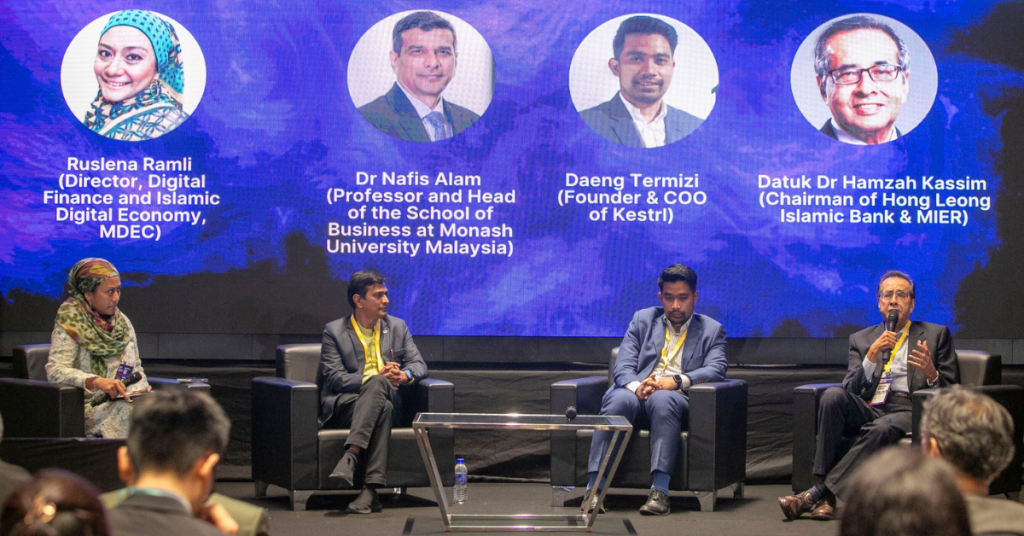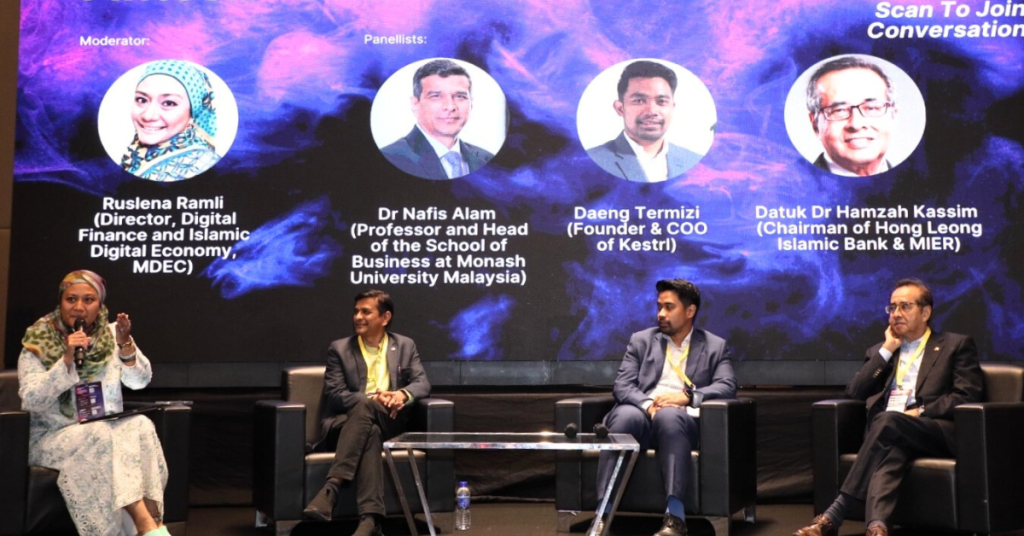A couple of weeks ago, we explained why non-Muslims should tap into the Islamic fintech space. It’s projected to grow to US$128 billion (RM536 billion) by next year and will be worth about US$5 trillion by 2030, based on our Ministry of Communications’ report.
The truth is that despite its name, Islamic fintech is actually agnostic in nature. But how so?
We got to hear the explanation from experts in the industry during NEXEA’s recent Disrupt Invest Summit. Ruslena Ramli, the Director of Digital Finance and Islamic Digital Economy at MDEC, moderated the stage and picked the brains of:
- Dr Nafis Alam, Professor and Head of the School of Business at Monash University
- Daeng Termizi, Founder & COO of Kestrl, a Muslim money app
- Datuk Dr Hamzah Kassim, Chairman of Hong Leong Islamic Bank and Malaysian Institute of Economic Research (MIER)
How can Islamic fintech be agnostic?
The public perception is that Islamic fintech is only for Muslims, or that only Muslims can facilitate such transactions. However, the truth is that anyone can do so.
The technological aspect of Islamic fintech itself is agnostic. “The Islamic part comes from the practices used in banking,” Daeng explained.
For context, this generally comes down to avoiding activities like riba’ (trading in credit) and gharar (trading in risk). Instead of charging interest on financing given out, Islamic banks give financing based on musyarakah (partnership agreement) where both parties share in profits and losses.
Aside from that, it readily integrates ESG (environmental, social, governance) frameworks as well. This is due to its shared emphasis on positive and sustainable development.

But calling it Islamic fintech makes it confusing, no?
There are rooters for both camps, but that’s an argument that Dr Nafis and Daeng strongly voiced.
Considering the (frankly) discriminatory view that the words “Islam” and “Muslim” tend to incite across the globe these days, the term “Islamic fintech” may not be the most strategic.
Sure, you can target the global Muslim population of about 2 million people. However, it also has an adverse effect of turning non-Muslims away before they have a chance to understand it.
To make it more appealing to the mass market, Dr Nafis suggested industry players treat it as alternative fintech. This gives more consumers the opportunity to diversify their investments and banking needs.
Once the tech itself is produced, they can then introduce the factors that make it Islamic. “The Shariah-compliance part will be easily embedded later because there are rules and regulations surrounding it,” he elaborated.
If you have a product that meets the Shariah requirements, it’s by default under the purview of Islamic finance.
“But if you go with Islamic fintech, there’s the notion that non-Muslims can’t use the product. That kind of concept needs to be taken out [because] a lot of confusion is there,” Dr Nafis said. “That notion needs to be removed in order for the sector to grow.”
How does the Islamic fintech sector grow from here?
That said, Islamic finance isn’t a foreign concept in Malaysia.
Dr Hamzah shared that over 70% of Hong Leong Islamic Bank’s customers are from the non-Muslim community. This shows that there’s already high literacy and acceptance on Islamic finance, so it shouldn’t be much different when you combine it with technology.
As long as the products are good and align with what people value in a financial product, it doesn’t matter that it’s Islamic.
Though, the 70% pool could refer more towards the older generation. The younger ones like millennials and Gen Z who are entering the workforce might not be as familiar with the concept.
Since Islamic fintech is geared towards this group, Dr Nafis encourages startups to understand the needs of consumers and create the fintech products accordingly. “If you don’t segregate the demands and needs of the group of individuals, then I don’t think any fintech platform will succeed.”
“You need to understand the needs of your customers and reconfigure your products to suit accordingly,” he concluded.
One factor he advises entrepreneurs to look into is solutions to wealth management and ways of diversification. As the breadth and depth of your products and services grow, so too will your business.
- Read articles we’ve written about Malaysian startups here.
Featured Image Credit: MDEC











